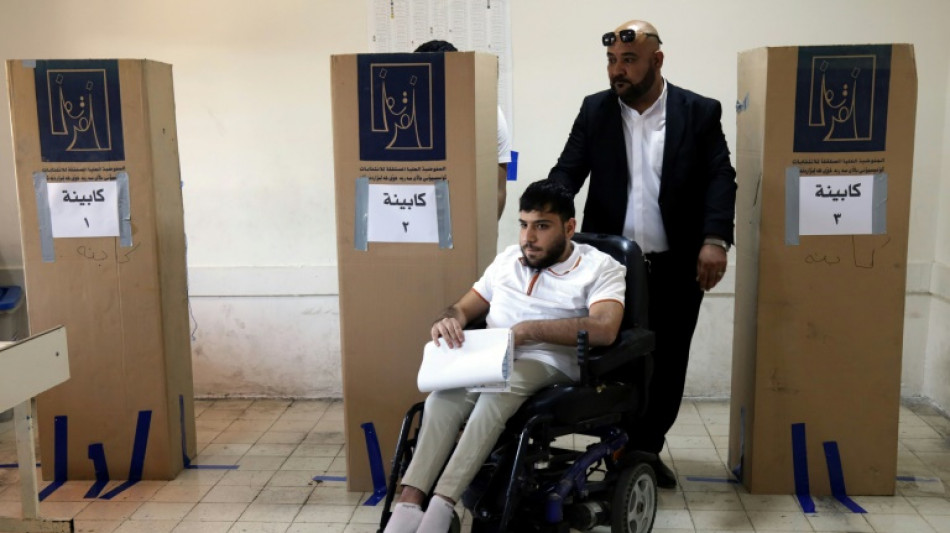
-
 Booker agrees to record $145 mn extension with Suns: reports
Booker agrees to record $145 mn extension with Suns: reports
-
Sabalenka criticises Anisimova behaviour after shock Wimbledon exit
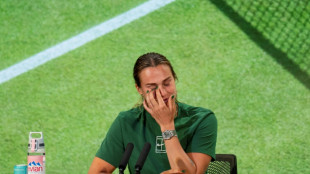
-
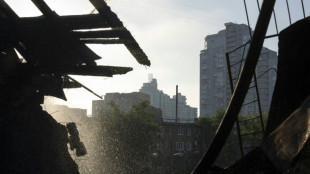 Russia and US hold 'frank' talks on Ukraine war
Russia and US hold 'frank' talks on Ukraine war
-
Swiatek swats Bencic aside to reach Wimbledon final against Anisimova
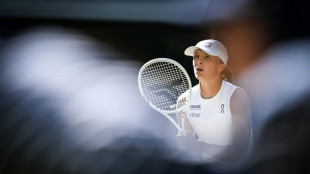
-
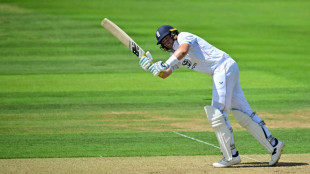 Root's 99 not out keeps India at bay in third Test
Root's 99 not out keeps India at bay in third Test
-
Delta offers upbeat outlook on travel demand, lifting shares
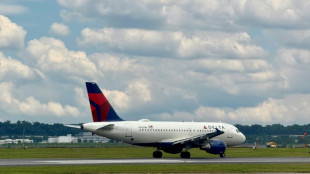
-
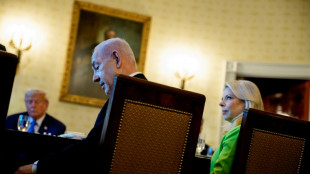 Sara Netanyahu: the ever-present wife of Israel's prime minister
Sara Netanyahu: the ever-present wife of Israel's prime minister
-
Italy can hurt rampant Spain, says coach Soncin
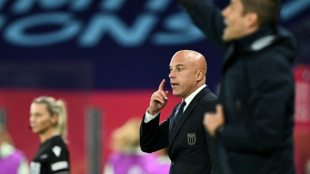
-
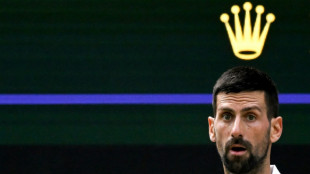 Djokovic faces Sinner in Wimbledon blockbuster as Alcaraz meets Fritz
Djokovic faces Sinner in Wimbledon blockbuster as Alcaraz meets Fritz
-
Rebooted and 'vulnerable': Superman is back on screens

-
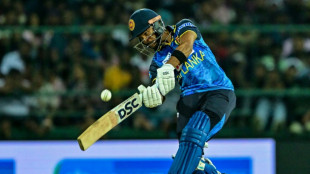 Sri Lanka steamroll Bangladesh to win first T20
Sri Lanka steamroll Bangladesh to win first T20
-
Swiatek routs Bencic to reach first Wimbledon final
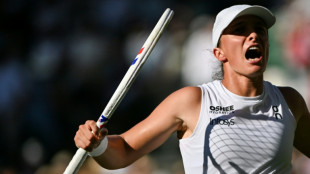
-
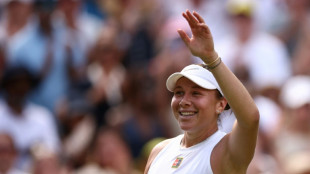 Anisimova shocks Sabalenka to reach Wimbledon final, Swiatek in action
Anisimova shocks Sabalenka to reach Wimbledon final, Swiatek in action
-
Europe court says S.African Semenya's gender eligibility trial wasn't fair
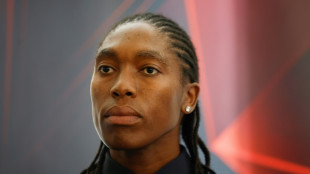
-
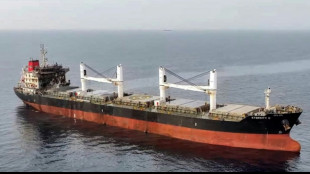 Ten rescued after deadly Huthi ship sinking off Yemen
Ten rescued after deadly Huthi ship sinking off Yemen
-
Scrutiny over Texas flood response mounts as death toll hits 120
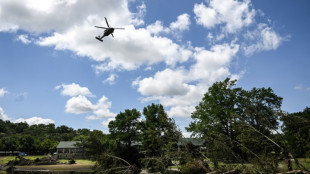
-
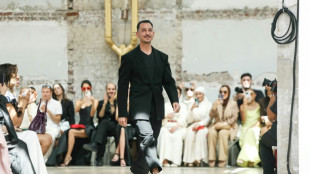 Rami Al Ali becomes first Syrian in Paris fashion programme
Rami Al Ali becomes first Syrian in Paris fashion programme
-
London stocks hit record high on tariff optimism

-
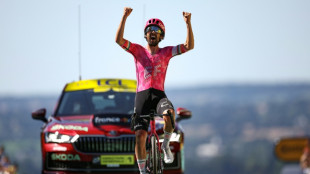 Ireland's Healy pulls off solo win at Tour de France
Ireland's Healy pulls off solo win at Tour de France
-
French appeals court clears two over first lady gender rumours
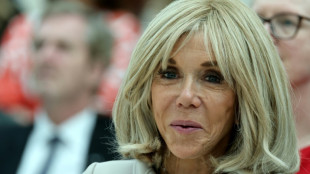
-
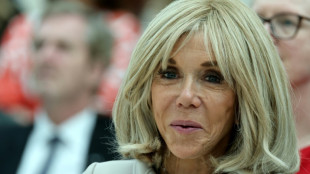 French appeals court court clears two over first lady gender rumours
French appeals court court clears two over first lady gender rumours
-
Barry Callebaut cuts outlook as chocolate sales volumes melt away
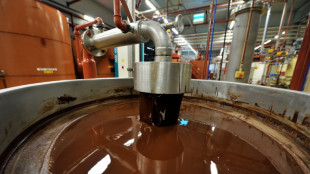
-
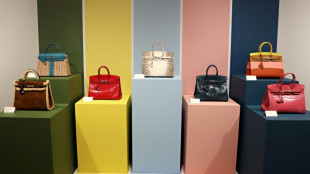 The $10 mn bag: Original Birkin smashes records at Paris auction
The $10 mn bag: Original Birkin smashes records at Paris auction
-
Anisimova stuns Sabalenka to reach Wimbledon final
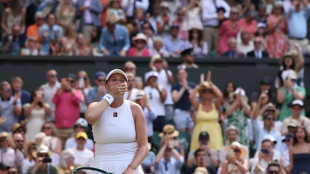
-
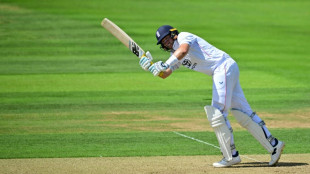 Root leads England revival after Reddy's double strike for India
Root leads England revival after Reddy's double strike for India
-
Snap, crackle and pay: Ferrero to buy WK Kellogg for $3.1 bn

-
 Shein faces 150-mn-euro fine in France
Shein faces 150-mn-euro fine in France
-
Rubio says Asia might get 'better' tariffs than others
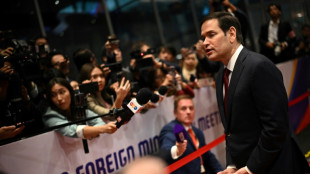
-
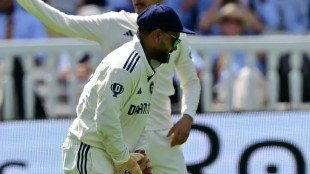 India wicketkeeper Pant leaves field injured in third Test
India wicketkeeper Pant leaves field injured in third Test
-
Russia says holds 'frank exchange' with US on Ukraine war
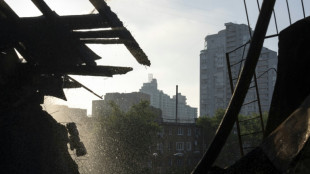
-
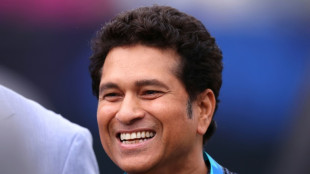 Tendulkar says 'life has come full circle' with Lord's portrait
Tendulkar says 'life has come full circle' with Lord's portrait
-
Wall Street stocks stall, London hits record high

-
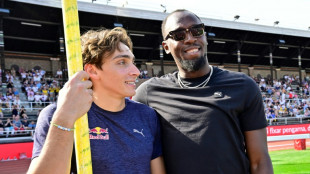 Duplantis unfazed by late world champs in Tokyo
Duplantis unfazed by late world champs in Tokyo
-
Europe court says S.African athlete's gender eligibility trial wasn't fair
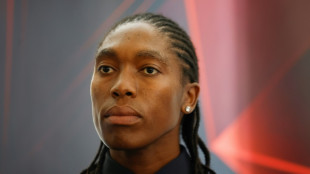
-
 Dzeko, 39, returns to Serie A with Fiorentina
Dzeko, 39, returns to Serie A with Fiorentina
-
Scrutiny over Texas flood response mounts as death toll tops 120
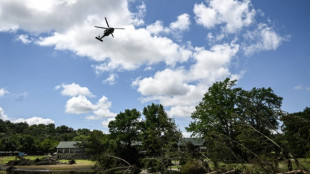
-
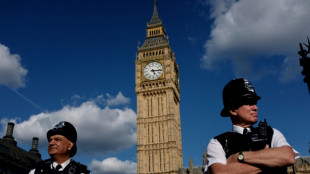 Iran threats in UK 'significantly increased': Intel watchdog
Iran threats in UK 'significantly increased': Intel watchdog
-
Volkswagen halts electric minivan exports to the United States

-
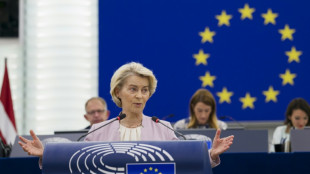 EU chief von der Leyen comfortably survives confidence vote
EU chief von der Leyen comfortably survives confidence vote
-
India's Reddy strikes twice to rock England
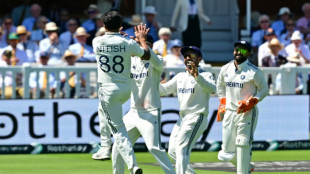
-
 EU opens new probe into TikTok data transfer to China
EU opens new probe into TikTok data transfer to China
-
Italy probes UK online bank Revolut for 'misleading' clients
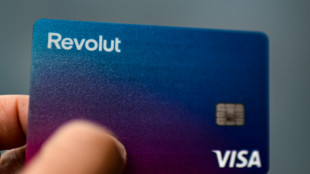
-
 Arsenal sign midfielder Norgaard from Brentford
Arsenal sign midfielder Norgaard from Brentford
-
Explosions, fires rock Kyiv in deadly Russian barrage
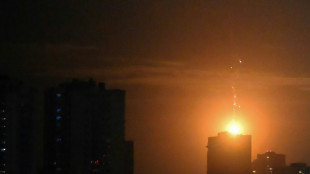
-
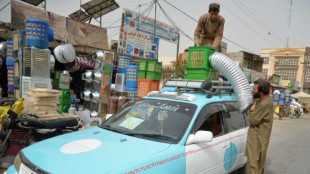 Fatigued Afghan taxi drivers take novel approach to AC
Fatigued Afghan taxi drivers take novel approach to AC
-
Rubio meets Russia's Lavrov at ASEAN talks
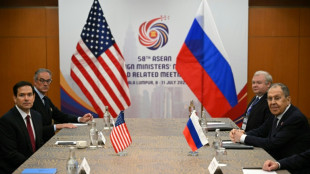
-
 Stocks rise on tariff optimism, London hits record high
Stocks rise on tariff optimism, London hits record high
-
Hamas says Israeli troops sticking point in truce talks as Gaza pounded
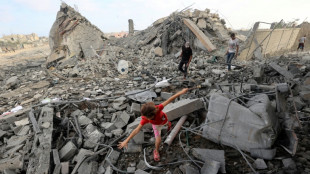
-
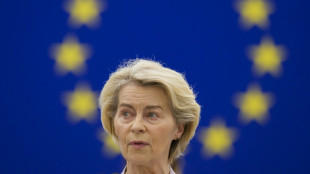 EU chief von der Leyen survives confidence vote by large margin
EU chief von der Leyen survives confidence vote by large margin
-
Europe court says S.African athlete's trial wasn't fair in gender testing case
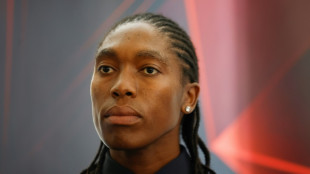

Oil-rich Iraqi Kurdistan votes, shadowed by economic struggles
Iraq's autonomous Kurdistan region voted on Sunday to elect a new parliament for the oil-rich region, where voters express concern over economic struggles and disenchantment with the political elite.
Iraqi Kurdistan presents itself as a relative oasis of stability in the turbulent Middle East, attracting foreign investors due to its close ties with the United States and Europe.
However, activists and opposition figures contend that the region, autonomous since 1991, faces the same issues affecting Iraq as a whole: corruption, political repression and cronyism among those in power.
Originally scheduled for two years ago, the vote has been postponed four times due to disputes between the region's two historic parties, the Kurdistan Democratic Party (KDP) and the Patriotic Union of Kurdistan (PUK).
Each party is controlled by a powerful Kurdish family -- the KDP by the Barzanis and the PUK by the Talabanis.
Despite holding election rallies and mobilising their patronage networks, experts say there is widespread public disillusionment with the parties, exacerbated by the region's bleak economic conditions.
By early afternoon, turnout was 31 percent, the electoral commission said, with polls due to close at 6:00 PM (1500 GMT) and official results expected 24 hours later.
Huri Mohammed, a 66-year-old housewife, said she voted for the KDP which dominates the regional capital Arbil, as it "serves the people".
But she expressed hope the next government would "pay attention to the poor classes. The majority of our population has limited means".
Opposition parties such as New Generation and a movement led by Lahur Sheikh Jangi, a dissident from the Talabani clan, may gain from a protest vote, said Sarteep Jawhar, a PUK dissident and political commentator.
Hiwa Hadi, a candidate for the newly formed opposition Halwest party, said after voting in Arbil: "People are dissatisfied and angry due to rising prices and taxes, electricity and water shortages".
- Tensions with Baghdad -
Political analyst Shivan Fazil, a PhD student at the US-based Boston University with a focus on Iraq, noted that there was "a growing fatigue with the region's two ruling parties".
He said people's living conditions "have deteriorated over the last decade."
Fazil cited erratic payment of salaries for the region's 1.2 million civil servants as problematic because the money serves as "a vital source of income for households".
This issue is tied to ongoing tensions between Kurdistan and the federal Iraqi government in Baghdad, amid disputes over control of the region's lucrative oil exports.
The creation of four new constituencies for this election -- a change from only one previously -- "could lead to redistribution in vote shares and seats in the next parliament", Fazil said.
He still predicted, however, that the KDP could maintain its majority.
The KDP is the largest party in the outgoing parliament, with 45 seats against 21 for the PUK. The KDP's majority was assured by an alliance with deputies elected via a quota reserved for Turkmen, Armenian and Christian minorities.
Iraqi court rulings have reduced the number of seats in the Kurdish parliament from 111 to 100, but with five seats still reserved for the minorities.
Of the region's six million inhabitants, 2.9 million are eligible to vote for the 100 representatives, including 30 women mandated by a quota.
In the last regional elections in 2018, voter turnout was 59 percent.
Once elected, the new representatives will need to vote for a new president and prime minister. The roles are currently filled by KDP figures Nechirvan Barzani and his cousin, Masrour Barzani.
Mohamed al-Hassan, the United Nations special representative in Iraq, welcomed the election as an opportunity for the Kurdistan region to "reinvigorate democracy and inject new ideas into its institutions".
However, 55-year-old teacher Sazan Saduala says she was boycotting the election.
"This government cannot be changed by voting," she said. "It maintains its power through force and money."
P.Stevenson--AMWN



